
Cat Allman was a program manager in the Open Source Outreach and Making & Science teams at Google and Google lead of Science Foo Camp. [1] She is currently Vice President of Open Source Research at Digital Science. [2]

Cat Allman was a program manager in the Open Source Outreach and Making & Science teams at Google and Google lead of Science Foo Camp. [1] She is currently Vice President of Open Source Research at Digital Science. [2]
Allman has been involved in open source software since the 1980s. [3] She worked with the global Free and open-source software community at Google. She worked on Google Summer of Code and Google Code-in. [4] As well as developing programming skills, she is interested in the interpersonal aspects of engineering. [5] She is on the board of directors at USENIX. [6] She served as a jury member for Falling Walls. [7]

KornShell (ksh) is a Unix shell which was developed by David Korn at Bell Labs in the early 1980s and announced at USENIX on July 14, 1983. The initial development was based on Bourne shell source code. Other early contributors were Bell Labs developers Mike Veach and Pat Sullivan, who wrote the Emacs and vi-style line editing modes' code, respectively. KornShell is backward-compatible with the Bourne shell and includes many features of the C shell, inspired by the requests of Bell Labs users.

James Arthur Gosling is a Canadian computer scientist, best known as the founder and lead designer behind the Java programming language.

Matthew Dillon is an American software engineer known for Amiga software, contributions to FreeBSD and for starting and leading the DragonFly BSD project since 2003.
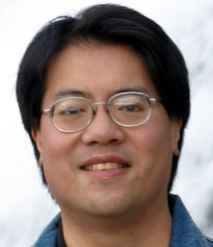
Theodore Yue Tak Ts'o is an American software engineer mainly known for his contributions to the Linux kernel, in particular his contributions to file systems. He is the secondary developer and maintainer of e2fsprogs, the userspace utilities for the ext2, ext3, and ext4 filesystems, and is a maintainer for the ext4 file system.

OpenSolaris is a discontinued open-source computer operating system for SPARC and x86 based systems, created by Sun Microsystems and based on Solaris. Its development began in the mid 2000s and ended in 2010.

DTrace is a comprehensive dynamic tracing framework originally created by Sun Microsystems for troubleshooting kernel and application problems on production systems in real time. Originally developed for Solaris, it has since been released under the free Common Development and Distribution License (CDDL) in OpenSolaris and its descendant illumos, and has been ported to several other Unix-like systems.

Jon "maddog" Hall is the board chair for the Linux Professional Institute.

Free and open-source software (FOSS) is software available under a license that grants users the right to use, modify, and distribute the software – modified or not – to everyone free of charge. FOSS is an inclusive umbrella term encompassing free software and open-source software. The rights guaranteed by FOSS originate from the "Four Essential Freedoms" of The Free Software Definition and the criteria of The Open Source Definition. All FOSS must have publicly available source code, but not all source-available software is FOSS. FOSS is the opposite of proprietary software, which is licensed restrictively or has undisclosed source code.
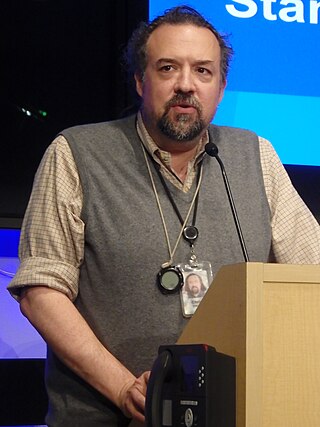
Chris DiBona was the director of open source at Google from August 2004 until January 2023.

Arduino is an Italian open-source hardware and software company, project, and user community that designs and manufactures single-board microcontrollers and microcontroller kits for building digital devices. Its hardware products are licensed under a CC BY-SA license, while the software is licensed under the GNU Lesser General Public License (LGPL) or the GNU General Public License (GPL), permitting the manufacture of Arduino boards and software distribution by anyone. Arduino boards are available commercially from the official website or through authorized distributors.

The Linux Foundation (LF) is a non-profit organization established in 2000 to support Linux development and open-source software projects.

GNU IceCat, formerly known as GNU IceWeasel, is a completely free version of the Mozilla Firefox web browser distributed by the GNU Project. It is compatible with Linux, Windows, Android and macOS.
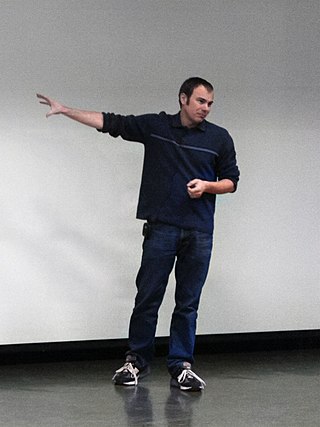
Christopher Arthur Lattner is an American software engineer and creator of LLVM, the Clang compiler, the Swift programming language and the MLIR compiler infrastructure.
AdBlock is an ad-blocking browser extension for Google Chrome, Apple Safari, Firefox, Samsung Internet, Microsoft Edge and Opera. AdBlock allows users to prevent page elements, such as advertisements, from being displayed. It is free to download and use, and it includes optional donations to the developers. The AdBlock extension was created on December 8, 2009, which is the day that supports for extensions was added to Google Chrome. It was one of the first Google Chrome extensions that was made.

Trojitá is a free software IMAP and SMTP email client developed using the Qt C++ library. The design goals of the maintainers are to develop a fast e-mail client which respects open standards, is cross-platform and uses the available resources very efficiently.
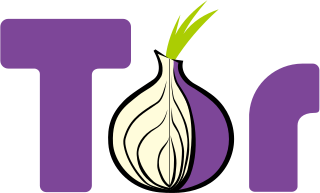
The Tor Project, Inc. is a 501(c)(3) research-education nonprofit organization based in Winchester, Massachusetts. It is founded by computer scientists Roger Dingledine, Nick Mathewson, and five others. The Tor Project is primarily responsible for maintaining software for the Tor anonymity network.
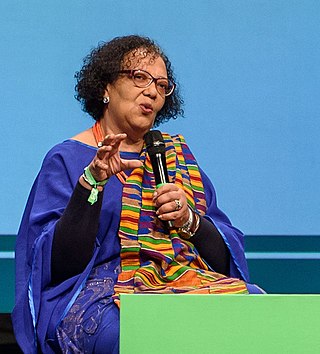
Dorothy K. Gordon is a Ghanaian technology activist and development specialist. She was the founding director general of the Ghana-India Kofi Annan Centre of Excellence in ICT (AITI-KACE). She left AITI-KACE in 2016. She is former board member of Creative Commons and currently serves on its advisory council. She also serves on the board of Linux Professional Institute
The Update Framework (TUF) is a software framework designed to protect mechanisms that automatically identify and download updates to software. TUF uses a series of roles and keys to provide a means to retain security, even when some keys or servers are compromised. It does this with a stated goal of requiring minimal changes and effort from repository administrators, software developers, and end users. In this way, it protects software repositories, which are an increasingly desirable target for hackers.

Open source is source code that is made freely available for possible modification and redistribution. Products include permission to use and view the source code, design documents, or content of the product. The open source model is a decentralized software development model that encourages open collaboration. A main principle of open source software development is peer production, with products such as source code, blueprints, and documentation freely available to the public. The open source movement in software began as a response to the limitations of proprietary code. The model is used for projects such as in open source appropriate technology, and open source drug discovery.

Catrobat is a block-based visual programming language and Open Source Software non-profit project. First released in 2010 by Wolfgang Slany from the Graz University of Technology in Austria. The multidisciplinary team develops the programming language and free apps for teenagers to create their own games, animations, music videos, or all other kinds of apps directly on a smartphone based on the Catrobat framework.